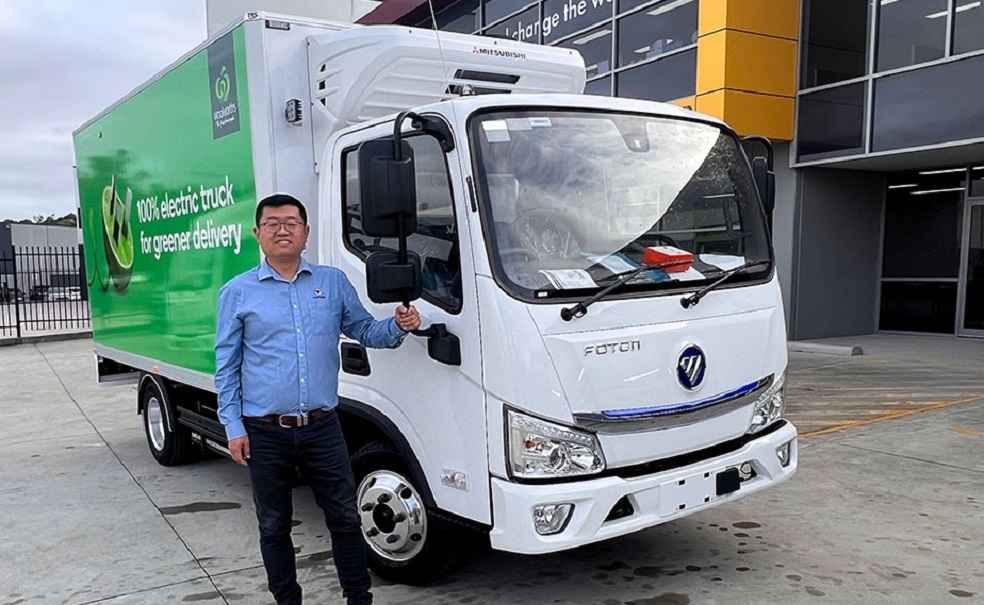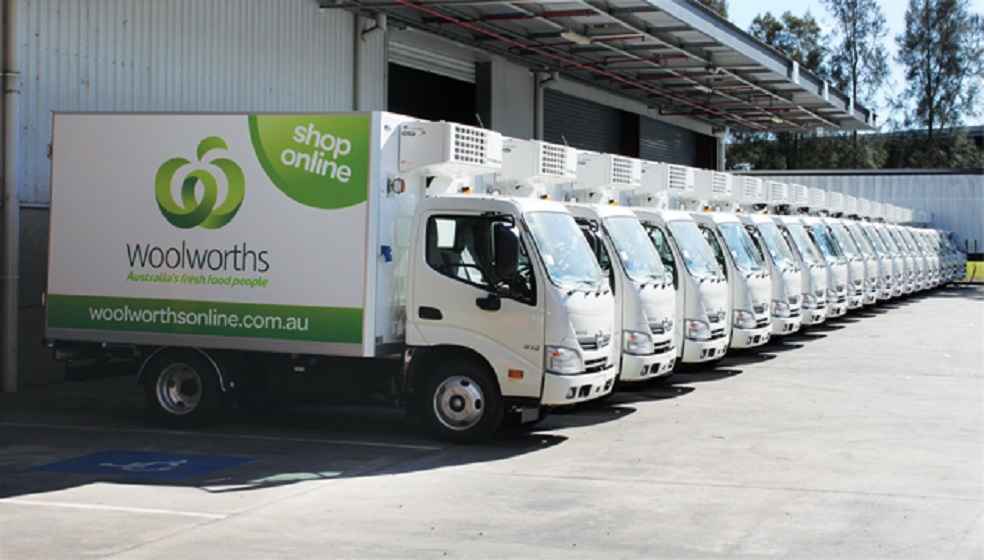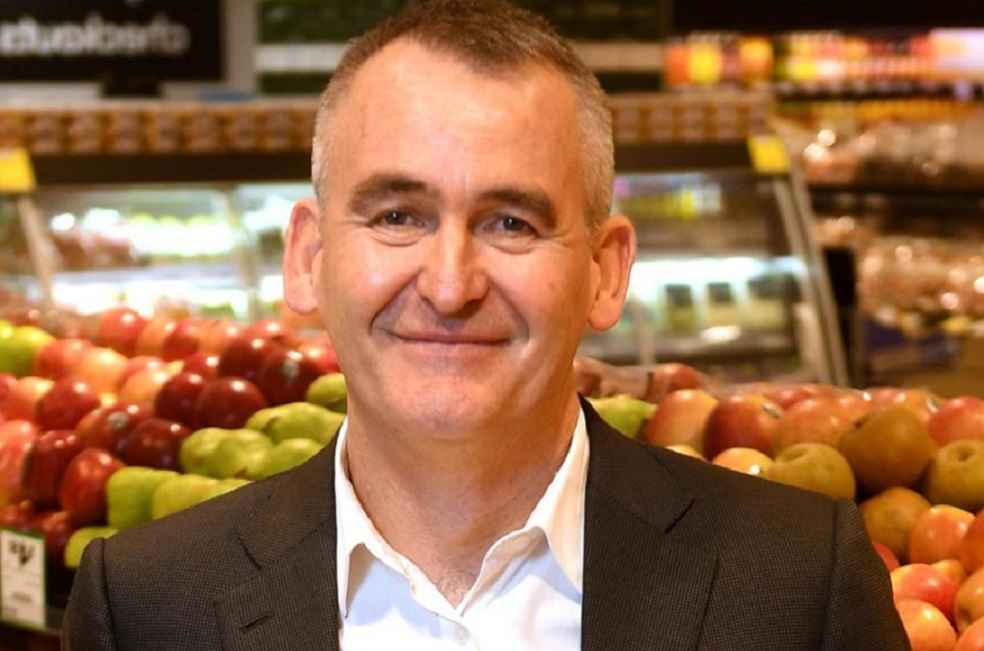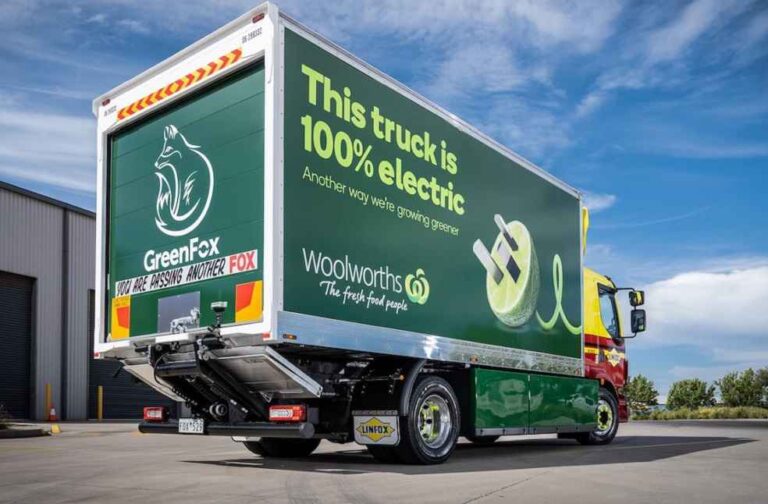Emphasizing its commitment to eco-friendly practices, the Australian retail behemoth Woolworths Group has announced its pledge to power its comprehensive vehicle fleet solely on renewable electricity by the year 2030. The commencement of this ambitious green transition is marked by the introduction of 25 Foton T5 electric vehicles, showcasing the group’s tangible steps towards sustainability.
Woolworths Group, a trusted retail entity since 1924, has been a beacon of convenience, value, and quality for the 24 million customers it serves weekly across its ever-expanding network of businesses. Known for its 1970’s slogan “the fresh food people,” the group is determined to extend its care to people and the planet, aligning with its primary goal.
 The company’s extensive fleet of over 1,200 home-delivery trucks across Australia and New Zealand, is expected to be fully electric by the end of the decade. This transformative shift in operations is predicted to reduce Woolworths’ operational transport emissions by a whopping 60% compared to current levels and to discontinue more than 3,000 internal-combustion engine vehicles.
The company’s extensive fleet of over 1,200 home-delivery trucks across Australia and New Zealand, is expected to be fully electric by the end of the decade. This transformative shift in operations is predicted to reduce Woolworths’ operational transport emissions by a whopping 60% compared to current levels and to discontinue more than 3,000 internal-combustion engine vehicles.
This bold green initiative was set into motion with the launch of 25 Foton T5 EV trucks, an initial step in phasing out the current fleet. These newly-introduced vehicles, equipped with state-of-the-art electric refrigeration systems, will join two existing SAIC EV trucks to start servicing Woolworths’ Sydney customers over the next two months.
Expanding its commitment to sustainability, Woolworths is also trialing three electric heavy-rigid vehicles, responsible for moving groceries from distribution centers to supermarkets in Sydney and Melbourne. Adding to its eco-friendly fleet, the company employs trucks with an e-axle trailer, an innovative system that recycles kinetic energy from the trailer’s wheels and axle to power the refrigeration system.

This unique technology significantly contributes to the group’s environmental goals, with a single trailer estimated to save over 5,000 litres of fuel or 14 tonnes of CO2 annually. However, the company acknowledges that the technology and infrastructure to support the load intensity and distances of long-haul freight is still in development.
In addressing infrastructure challenges, Woolworths Group aims to contribute to public infrastructure planning to ensure the development of suitable charging technology and locations for electric metro fleets. This includes provisions for low emissions long-haul freighter trucks, requiring accessible recharging points across regional Australia.
At present, the supermarket’s 27 new home delivery EVs are set to operate out of Woolworths’ Customer Fulfillment Centres in Mascot and Caringbah, Sydney. These centers have installed new EV charging infrastructure to support the growing fleet of electric trucks delivering to customers across various Sydney regions.

Woolworths Group CEO, Brad Banducci, expressed his commitment to the cause, “Our home delivery trucks are a familiar sight in neighbourhoods across Australia, and within the next seven years, we want to make every one of them electric, and free of fossil fuels. We hope to set an example for other businesses to support the growth of Australia’s EV industry.”
Foton Mobility Distribution CEO, Neil Wang, echoed Banducci’s sentiments, showing pride in collaborating with Woolworths. The Foton T5, he stated, is ideal for the last-mile logistics industry and is expected to encourage others in the transport and logistics sector to accelerate their transition towards ‘net zero’.
Woolworths’ move sends a strong message to retail corporations worldwide. It further establishes the importance of environmentally-friendly operations in achieving net-zero emissions, becoming increasingly critical for a sustainable future.
GOLD MINING: Environmental Crisis and Sustainable Shift



